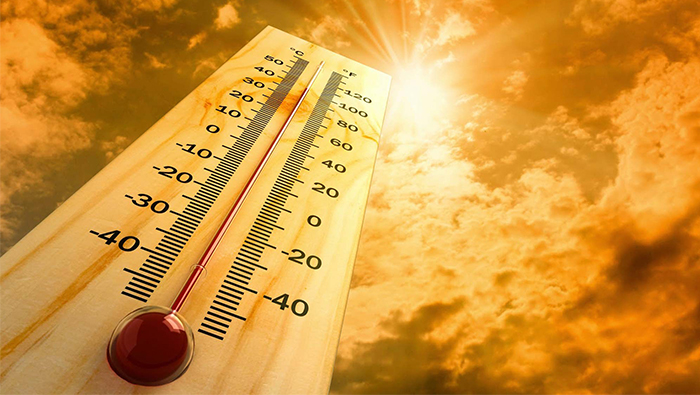The Sunaynah station in Al Buraimi Governorate of Oman experienced scorching temperatures on July 8, 2024, reaching nearly 50 degrees Celsius. This made it the hottest recorded temperature in the Sultanate of Oman in the past 24 hours. Following closely behind was the Hamra Ad Duru station in Al Dhahirah Governorate, which recorded a temperature of 49.3 degrees Celsius, and the Fahud station in Al Wusta Governorate, which saw temperatures reach 48.7 degrees Celsius. Other areas with high temperatures include Ibri in Al Dhahirah Governorate at 48.6 degrees Celsius, Zamaim, Maqshin, and Haima at 48.1 degrees Celsius, and Al Buraimi Governorate at 48.0 degrees Celsius.
The extreme temperatures in these areas highlight the intense heatwave that has been affecting Oman recently. The high temperatures can pose significant risks to residents, especially vulnerable populations such as the elderly and young children. It is important for individuals to take precautions during such extreme weather conditions, such as staying hydrated, avoiding prolonged sun exposure, and seeking shelter in air-conditioned spaces when possible. In addition, it is essential to check on vulnerable individuals to ensure their safety and well-being during these challenging times.
These record-breaking temperatures also raise concerns about the impact of climate change on the region. As global temperatures continue to rise, extreme heat events are becoming more frequent and intense. This can have wide-ranging effects on the environment, agriculture, public health, and infrastructure. It is crucial for governments, businesses, and individuals to take action to mitigate the effects of climate change and work towards a more sustainable future.
In response to the heatwave, authorities in Oman have issued warnings and advisories to the public, urging them to take necessary precautions to stay safe during the extreme weather conditions. This includes staying indoors during the hottest part of the day, wearing lightweight and light-colored clothing, and avoiding strenuous outdoor activities. It is also important to be aware of the signs of heat-related illnesses, such as heat exhaustion and heatstroke, and seek medical help if necessary.
As the temperatures in Oman continue to soar, it is important for individuals to be proactive in protecting themselves and their loved ones from the heat. This includes staying informed about weather forecasts, staying hydrated, and taking breaks in shaded or air-conditioned areas when outdoors. By taking these simple precautions, individuals can reduce their risk of heat-related illnesses and stay safe during the hot summer months.
Overall, the recent record-breaking temperatures in Oman serve as a reminder of the urgent need to address climate change and its impact on our planet. It is essential for individuals, communities, and governments to work together to reduce greenhouse gas emissions, promote renewable energy sources, and adapt to the changing climate. By taking action now, we can create a more sustainable future for generations to come.











